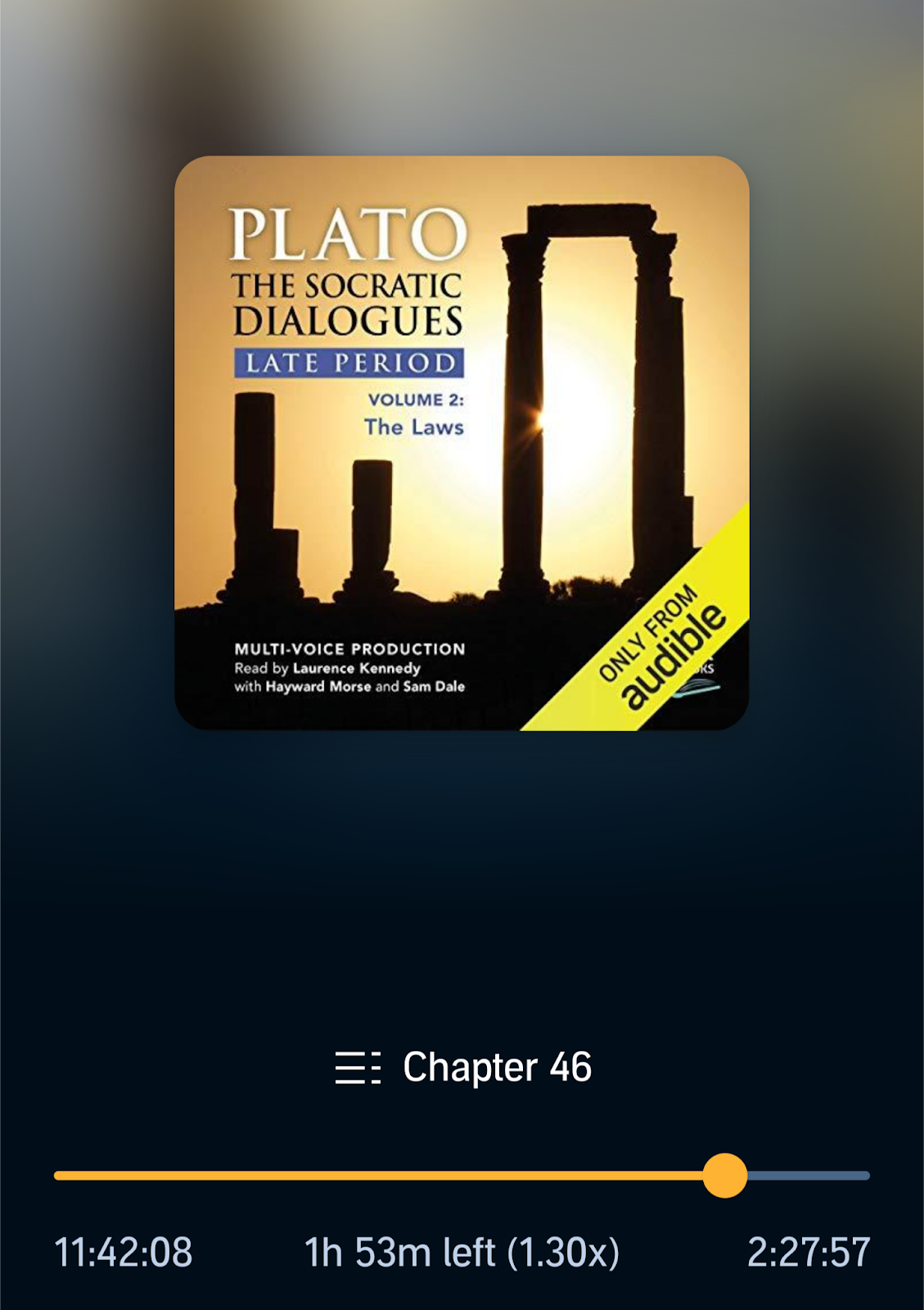laws
The Dialogues of Plato — Translation by David Horan
Persons in the dialogue: Athenian Stranger, Cleinias, Megillus
913A Athenian Stranger: What is needed after all this is proper regulation of our dealings with one another. The simple rule, I believe, is this: as far as possible no one should touch my personal property, nor indeed disturb it in the slightest, unless he has my full consent. And I, if I have any sense, would act on the same basis in relation to the property of others. Let us speak, in the first place, of treasure which someone who is not an ancestor of mine has set aside as a hoard, for himself and his own people. I must 913B never pray to the gods that I may discover such treasure, nor, if I find it, should I disturb it, nor indeed should I take advice from the so-called prophets who are certain to advise me to “take up what has been deposited in the earth”. For I would never gain as much benefit in terms of wealth by taking it up, as I would increase the store of my soul’s virtue and justice by letting it lie. For by acquiring one possession instead of another, the better one in my better part, I prefer to acquire justice in my soul rather than riches in my estate. This is one of the many cases where it is well 913C said that “the immovable is not to be moved”. And we should also heed the stories that are told about these matters, whereby nothing of this sort is advantageous to future generations. And whoever pays no heed to children, disregards the one who enacted the law, and takes up, without the permission of the person who put it there, what neither himself nor his ancestors put down. He thus subverts the most sublime of all laws, the simplest one, enacted by a truly noble man, which states: “Don’t take up 913D what you have not put down.” But what should happen to someone who despises these two lawgivers and takes up what he himself has not put down, a treasure of some significance, often quite enormous? What the gods will do to him, God knows, but the first person to become aware of the offence is to report it. If this sort of thing happens in the city he informs the city police, or the market police if it happens in a city marketplace; and 914A if it occurs elsewhere in the country, the rural police and those in charge of them are to be informed. Once they have been informed, the city is to send a delegation to Delphi, and whatever the god ordains in relation to the treasure or the person who disturbed it, is to be enacted by the city in subservience of the pronouncements of the god. If the person who disclosed the offence be a free born citizen, let him be famed for his excellence, or indeed for his depravity if he does not disclose the offence. If a slave discloses the crime it would be right for the city to give him his freedom, having compensated his master, but he should be sentenced to death for failure to do so.

Comments
Post a Comment
No Comment